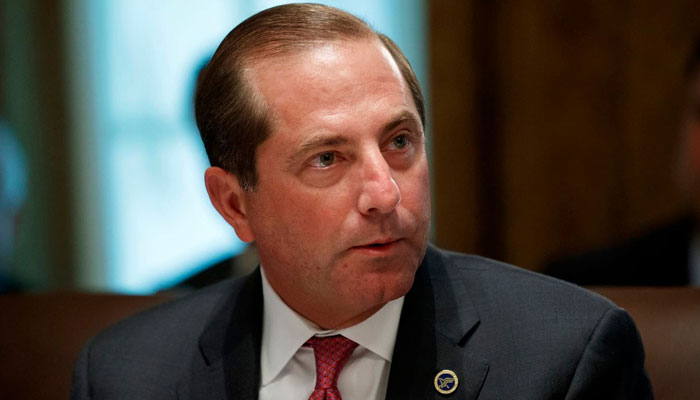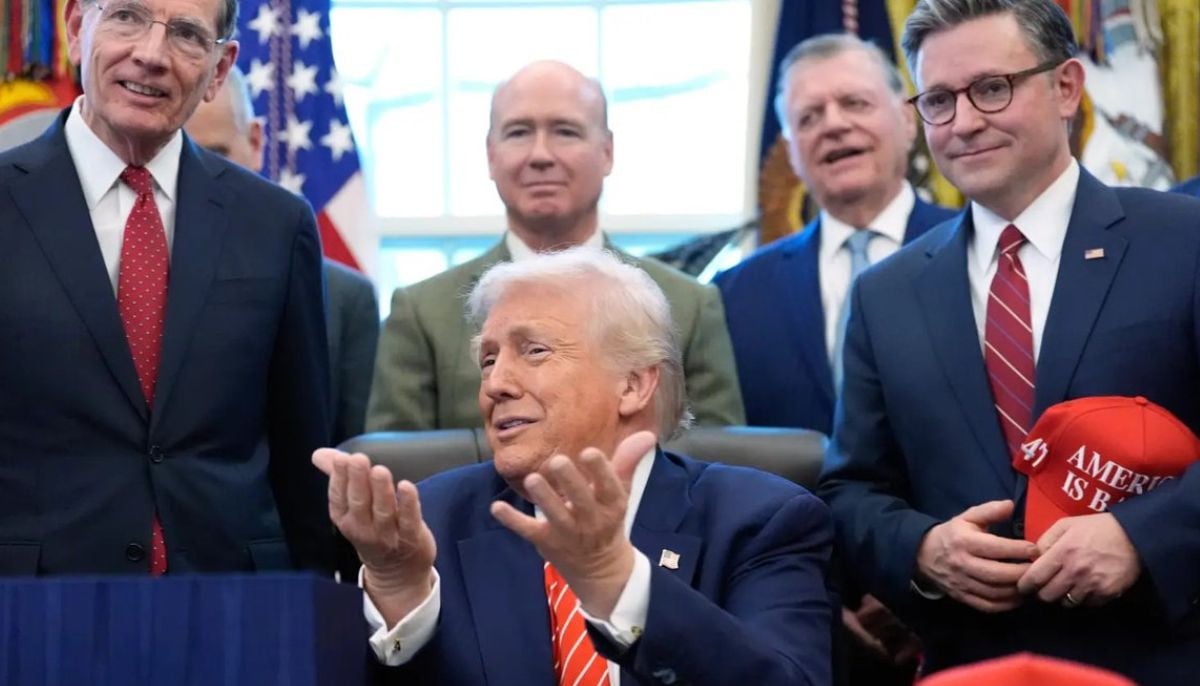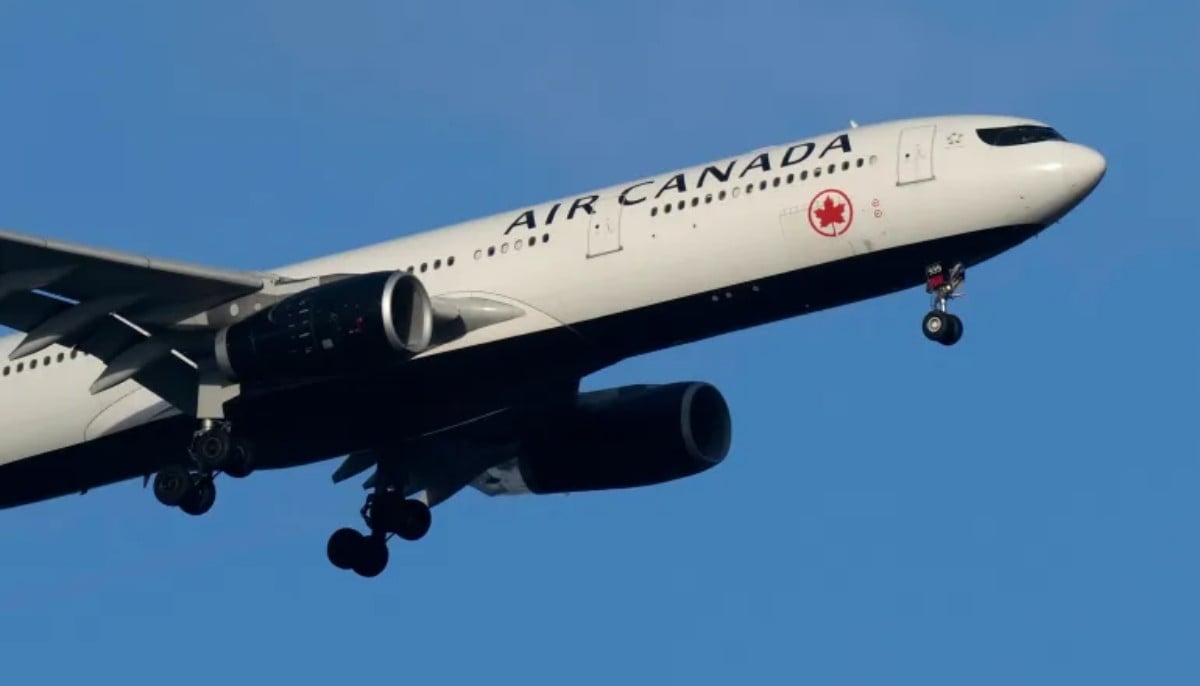US outlines plan for importing cheaper drugs from Canada
Americans spend an average of $1,200 on prescription drugs per year, according to the Organization for Economic Cooperation and Development -- more than in any other country in the world.
US President Donald Trump´s administration on Wednesday announced a plan that would allow the importation of lower-cost prescription drugs from Canada, in a move denounced as "dangerous" by the pharmaceuticals industry.
Americans spend an average of $1,200 on prescription drugs per year, according to the Organization for Economic Cooperation and Development -- more than in any other country in the world.
The price of insulin, a life-saving medicine used to treat diabetes, has more than tripled over the past decade, forcing many uninsured patients to ration their doses, smuggle it in from Canada or Mexico, or even choose between treatment and other basic expenses such as rent.
"Americans deserve protection from high drug costs, and they deserve a health care system that provides affordable, patient-centric care," US Health and Human Services Secretary Alex Azar said as he announced the Safe Importation Action Plan.
"Lowering drug prices for many Americans - including our great seniors!" President Donald Trump, who has railed against soaring costs, said on Twitter, hailing the initiative.
Trump is also backing a bipartisan bill in the Senate that would cap drug prices, and the issue has come to the fore in the 2020 presidential election campaign.
But the Pharmaceutical Research and Manufacturers of America hit out, saying the plan would endanger Americans.
"The administration´s importation scheme is far too dangerous for American patients," said CEO Stephen Ubl, adding: "Law enforcement has repeatedly warned that importation schemes could worsen the opioid crisis and jeopardize public safety."
Ubl added that the plan was a "gimmick" and urged the government to focus on policies that lower patients´ out-of-pocket costs, the portion that insurance companies do not cover.
The US Chamber of Commerce joined in the criticism, saying importing drugs "will have significant and perverse consequences, including exposing patients to the substandard, falsified, and counterfeit medicines."
- ´Protected monopolies´ -
The pharmaceuticals industry argues that high costs are the price of innovation, but numerous studies have found that rising expenses are not linked solely to research and development.
A 2016 Harvard Medical School study blamed factors such as the US patent system, which grants makers "government-protected monopolies" through market exclusivity that lasts years before generics can enter the market, and can be extended through "trivial" changes to patented molecules.
Drug makers have also been able to sidestep competition by offering settlements that pay generic companies to delay their lower-cost alternatives, known as "pay for delay" deals.
The study also noted that unlike nearly every other advanced nation, the US health care system allows manufacturers to set their own prices rather than having to negotiate with national health insurance systems.
The proposal by the Health and Human Services (HHS) department and Food and Drug Administration (FDA) outlined two possibilities for how the plan could unfold.
- European experience -
The first involves using the agencies´ current authority to authorize pilot projects developed by states, wholesalers and pharmacists to import certain drugs from Canada, though these would be limited in scope.
Under the second path, the FDA would work with manufacturers seeking to import into the US versions of those drugs they sell in foreign countries, "potentially allowing them to offer a lower price than what their current distribution contracts require."
These could include insulin as well as drugs used to treat rheumatoid arthritis, cardiovascular disorders and cancer.
Farasat Bokhari, a health economist at the University of East Anglia in Great Britain, said that in the European Union, where so-called parallel trading of prescription drugs is already legal, there had been mixed results and studies have drawn conflicting conclusions on its outcome.
"We have to be careful that it does not lead to an increase in prices or reduction of supply in the Canadian market," he told AFP.
He added the US could learn from the European experience and empower its competition authority to investigate and penalize companies if they conspire to restrict supplies together or abuse a position of market dominance.
The HHS and FDA did not provide a timeframe for the implementation of the plan, which will likely be met with legal challenges from the pharmaceutical industry.
-
Gordie Howe Bridge faces uncertainty after Trump warning to Canada
-
Air Canada’s flights to Cuba halted as aviation fuel crisis worsens
-
At least 53 dead after migrant boat capsizes off Libya
-
'God of War' announces casting major key role in Prime Video show
-
Baby left in running bathtub dies after father ‘forgets’ him
-
Prince William meets Saudi Crown Prince Mohammed bin Salman
-
Ghislaine Maxwell will not answer Congress questions on Epstein
-
Kensington Palace announces Prince William's arrival in Saudi Arabia












